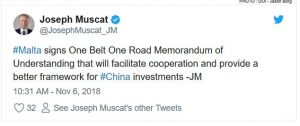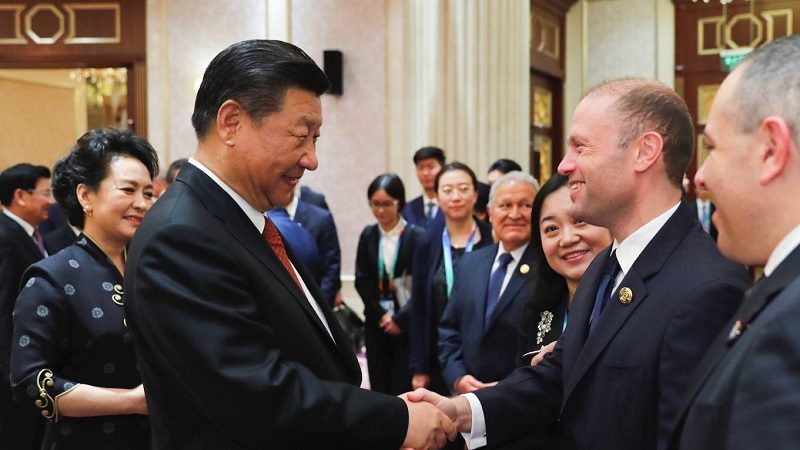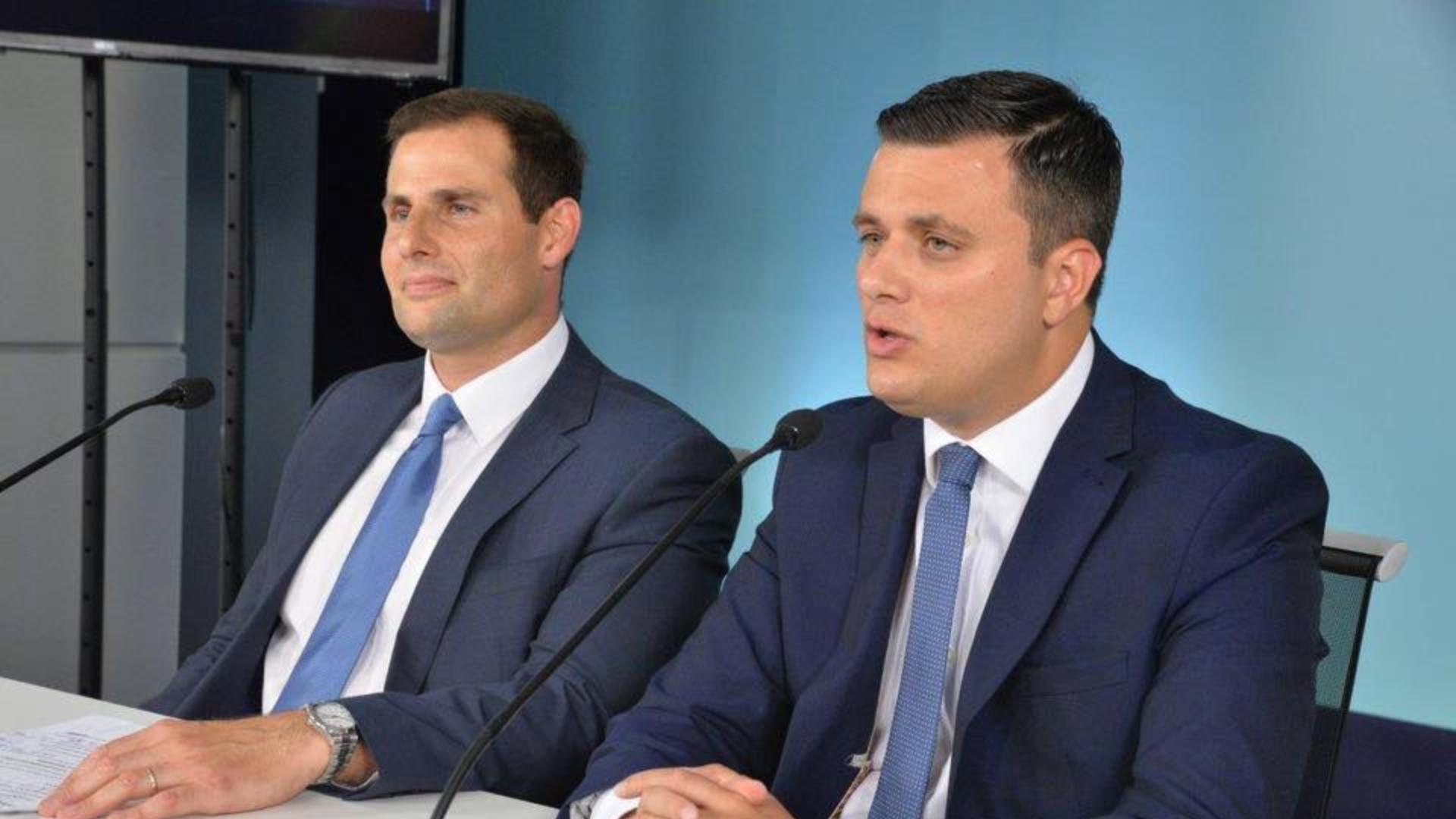Malta is among the first European countries to sign an agreement with China to partner with the country to implement its President’s vision of the ‘One Belt One Road’ project, the government announced on Tuesday in a brief statement that put this as another great move for Malta.
The government described the memorandum of understanding on the ‘One Belt One Road’ project as an “initiative to bring together different agreements. It signals to Chinese companies that, for the Chinese government, Malta is a good country to invest in with respect to European Union regulations”. The government must have felt the need to explain what the project was because it was nowhere on Malta’s agenda until it was a done deal. But government consultant Shiv Shankaran Nair – blacklisted by the World Bank twice – has been promoting the ‘One Belt One Road’ initiative for a while.
The government must have felt the need to explain what the project was because it was nowhere on Malta’s agenda until it was a done deal. But government consultant Shiv Shankaran Nair – blacklisted by the World Bank twice – has been promoting the ‘One Belt One Road’ initiative for a while.
This is what Shiv Nair said about the ‘One Belt One Road’ Programme in an article he wrote in December 2017: “Chinese money has been quietly buying friends and influencing people. In Malta, the Chinese committed almost €300 million to buy 30% of the bankrupt State power utility, while in Greece they snapped up 40% of the strategic port of Piraeus. Hungary, the bad boy of the EU, has been chosen as a key logistics hub on the trans-Siberian link.”

Shiv Shankaran Nair as Chairman of Suez Capital in a meeting in Beijing related to the One Belt One Road project with Chairman of China Harbour Lin Yi Chong.
Five years ago Chinese President Xi Jinping began promoting a network of Chinese-financed roads, pipelines, ports, power plants and other infrastructure across Asia, the Middle East, Africa and Europe. It is the Chinese President’s master plan to project Chinese power, influence and trade across much of the world.
“Back then, the idea sold itself. China had unmatched skill at building mega projects, and limitless pools of capital with which to fund them. The shine has since come off,” Bloomberg states.
Malaysia has suspended or canceled Chinese projects worth more than $22 billion, and Malaysians recently threw out their ruling party, for the first time, because of anger about Chinese encroachment. Leaders in Sri Lanka and the Maldives have fallen for similar reasons.
Thailand and even Pakistan (one of China’s closest allies) have criticised Chinese lending terms. And Myanmar has severely scaled back a $10 billion port scheme.
The ‘One Belt One Road’ initiative has been criticised after it led to countries taking on heavy debt for projects developed and implemented by Chinese companies – referred to as China’s ‘debt trap diplomacy’.
The Economist warned that Malaysia’s rethink of Chinese belt-and-road projects has lessons for other countries: “China is not used to recipients of its largesse challenging the terms on which it is offered. Yet growing numbers of them are struggling with debts to Chinese entities taken on to fund Chinese-staffed projects”.
Critics see a deliberate strategy of throwing money at governments as a way for China to gain leverage over smaller countries to gain diplomatic support or strategic facilities.
Pacific Islands, for example, have mounting debt with China as a result of these infrastructural projects. Chinese loans account for almost half the external debt of Vanuatu – that same country whose foreign minister Shiv Nair brought to Malta for a meeting with the Prime Minister to create a ‘Commonwealth of Blockchain Islands’.
This is the second time that Shiv Nair has surfaced in the space of a month, promoting projects that just happen to fall in line with two recent major initiatives by the Maltese government: The signing of a memorandum of understanding on the ‘One Belt One Road’ initiative, and ‘Blockchain Island’.
Malta boasts it is among the first European countries to join the project. Perhaps Muscat is a visionary unmatched in Europe. Then again, a look at the only other EU countries that have taken up China’s offer so far, like Hungary and Poland, are also getting a bad rap in Europe.
Related post: What ‘Blockchain Island’ dragged in – World Bank Blacklisted Shiv Nair is Back













